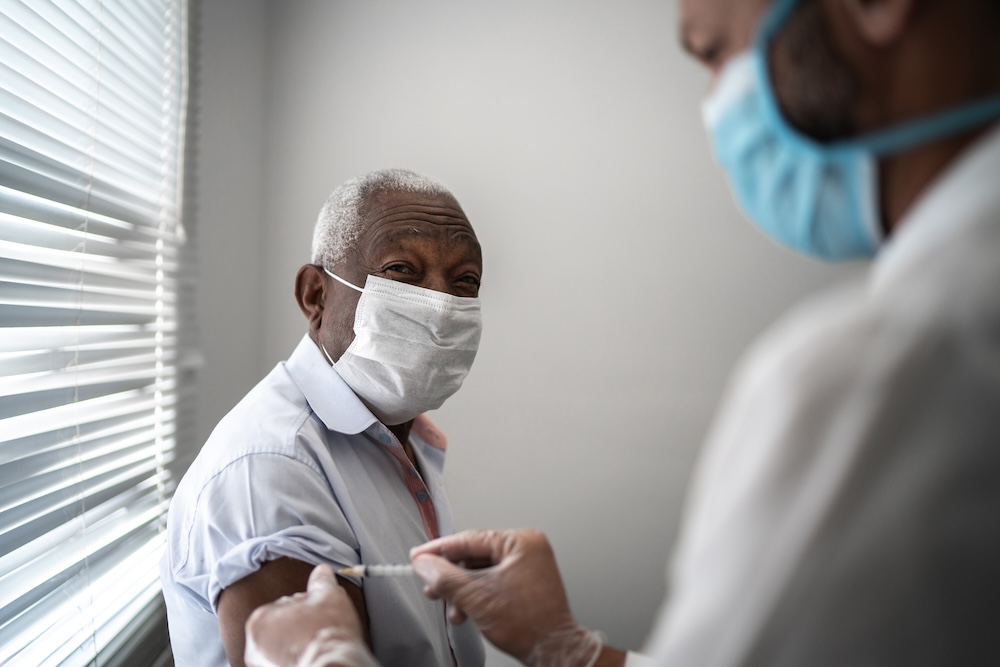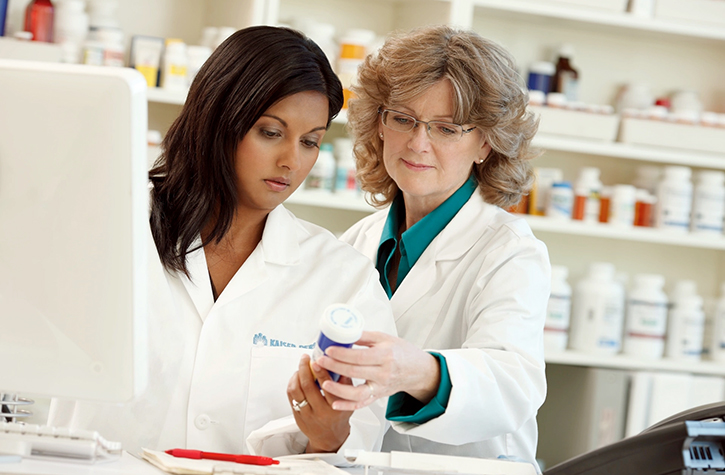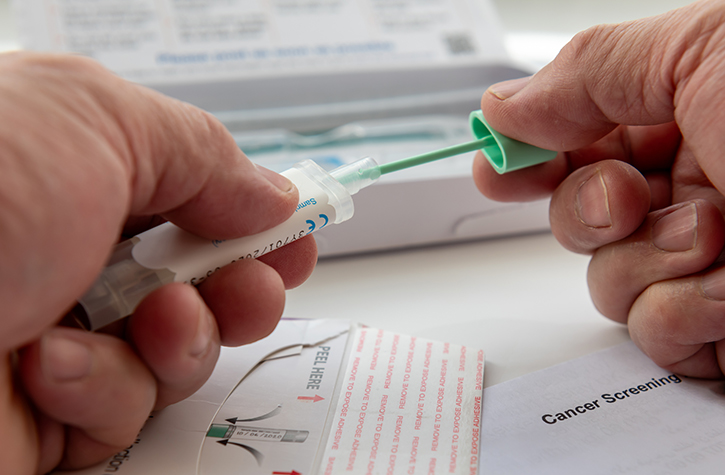October 28, 2024
Breast care coordinators who provide pre-test counseling to newly diagnosed breast cancer patients can help hospitals safely expand eligibility for genetic testing for inherited gene mutations that increase cancer risk, a new Kaiser Permanente study shows.
The research, published in Annals of Surgical Oncology, provides support for programs that expand eligibility for genetic counseling and testing to a broader group of patients. The results of genetic testing after a breast cancer diagnosis are used to guide treatment decisions.

Veronica Shim, MD
The study included 2,294 Kaiser Permanente Northern California members newly diagnosed with breast cancer and treated at one of KP Northern California’s 14 breast centers between December 2020 and June 2021. During that time, four of the centers were piloting a new care pathway that expanded eligibility for genetic testing to all newly diagnosed breast cancer patients ages 65 and under, with pre-test counseling provided by a breast care coordinator with training in genetic testing. Patients with a positive test for an inherited genetic mutation were referred to a genetic counselor.
The 10 other breast centers continued to provide routine care: referring patients who were at higher risk of having an inherited mutation that increases breast cancer risk based on their family history, age (45 or under), and other factors to a genetic counselor for pre-test and post-test counseling.
At the pilot sites 61.6% of patients had genetic testing compared with 31.7% of those seen at the regular care sites. Overall, a similar percentage of patients were referred to a genetic counselor — 33.7% of patients in the pilot sites and 31.7% of patients at the routine care sites — even though many more patients were tested at the pilot sites.
Ultimately, 3.6% of the patients at the pilot sites learned they likely had a breast cancer-related genetic mutation compared with 1.6% of the patients at the routine care sites.
“Knowing that a patient newly diagnosed with breast cancer has an inherited mutation that increases cancer risk helps us tailor treatment options to that patient,” said study lead author Veronica Shim, MD, a breast cancer surgeon with The Permanente Medical Group. “But having this information doesn’t only affect the patient. It they have an inherited mutation it affects their family members as well. So, the more people we can test, the better our ability to help patients and their families.”
Expanding testing
The most common hereditary genetic variations tied to breast cancer are on the genes known as BRCA1 and BRCA2 (BRCA is short for BReast CAncer). These genetic mutations (also called variations) were first identified in the mid-1990s. Since then, many more genes that carry mutations that can increase cancer risk have been discovered. Inherited genetic mutations that increase cancer risk can be passed down from a mother or father to their children.
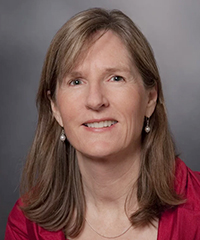
Laurel Habel, PhD
For decades, genetic counselors provided both pre- and post-test counseling to newly diagnosed breast cancer patients who met specific criteria — such as a family history of breast cancer or age at diagnosis — for genetic testing. Initially, this testing was limited to the BRCA genes. But over the past two decades, not only have more genetic variations that increase cancer risk been discovered, but the cost of testing has decreased dramatically. As a result, at KP Northern California, eligible patients are now offered genetic tests that look for variations in 62 genes associated with breast, ovarian, endometrial, colorectal, and other cancers.
“Over time, national professional guidelines have been expanding their eligibility criteria for recommended testing to help maximize the identification of newly diagnosed breast cancer patients who have an inherited mutation in a cancer-related gene,” said senior author Laurel Habel, PhD, a research scientist at the Kaiser Permanente Division of Research. “But this expansion can overwhelm genetics departments. Our study shows us that you will find more patients with mutations if you expand eligibility, and if you provide training to breast care coordinators, who at KP Northern California are nurses and nurse practitioners, you can do this without a significant impact on genetics departments.”
Responding to patients
Audrey Karlea, MS, LCGC, a genetic counselor at KP Oakland and study co-author, has been providing genetic counseling to breast cancer patients in KP Northern California for 16 years.
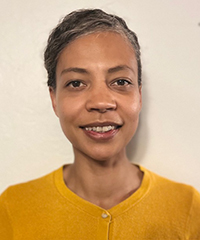
Audrey Karlea, MS, LCGC
“The difference between what it was like when I first started and now is like night and day,” she said. “Testing is much more accessible now, and it has much more clinical utility. Also, as celebrities like Angelina Jolie have spoken publicly about their breast cancer diagnosis and genetic testing, and with people having more familiarity with genetics due to companies like Ancestry and 23andMe, the volume of requests we receive for testing has skyrocketed. With all of these things going on, it made sense to look at new ways to provide pre-test counseling.”
Integrating pre-test counseling into a patient’s first appointment with their breast care coordinator also has the potential to help reduce disparities in testing, said Ms. Karlea. “Any time that we refer a patient to a specialist, we run the risk of their not keeping that appointment, for a variety of reasons that might overlap with sociodemographic factors. Not having to refer patients out helps close that gap.”
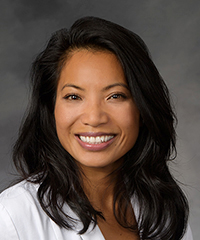
Poline Engeman, NP
The pilot program was studied at the breast centers at KP Modesto, Oakland, Sacramento, and San Rafael. KP Northern California aims to have breast care coordinators offer expanded testing at all its breast centers.
“Having been part of this pilot, I can’t stress enough the benefits it brings to our patients,” said Poline Engeman, NP, breast care coordinator at KP South Sacramento. “It helps reassure our patients and assists them in making timely surgical decisions on choosing a lumpectomy or a mastectomy. It also helps them get into surgery and start treatment more quickly.”
Ms. Engeman said the new program also helps breast care coordinators meet patients where they are. “Patients come to us aware of genetic testing, and they are surprised at the initial visit when we offer it,” she said. “This definitely helps check off one of their major concerns and items on their checklist. It’s another way of providing top-of-the-line care.”
This study was funded by the Targeted Analysis Program and The Permanente Medical Group Delivery Science and Applied Research program.
Coauthors include Leslie Manace Brenman, MD, MPhil, Patience Odele, MD, Brooke Vuong, MD, Jennifer McEvoy, MD, C. K. Chang, MD, and Dinesh Kotak, MD, with The Permanente Medical Group; Jamila Gul, BS, with the Division of Research; and Elizabeth Hoodfar, MS, LCGC, Tracy D. Chan, RN, Vanessa M. Sheldon, RN, and Deirdre M. Thorne-Hadfield, NP, with Kaiser Permanente Northern California.
This story originally appeared on Division of Research Spotlight.



